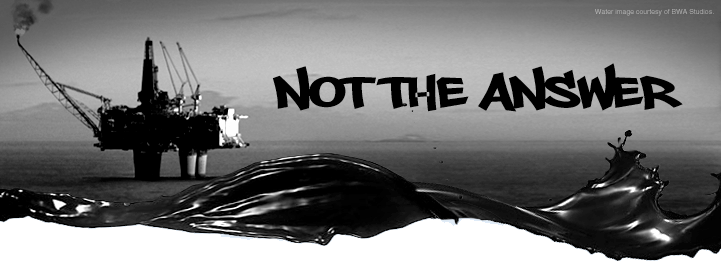by Amy Smart & Dan Jacobson in the Capitol Weekly: Last week the state Assembly defeated a plan to drill off the coast of Santa Barbara. But the group behind this plan, a Houston-based oil company called Plains Exploration and Production, Co. (PXP), isn’t about to give up -- not when it has spent millions so far on PR and lobbying.
Wall Street investors, having heard that PXP’s lobbying efforts were able to get Gov. Schwarzenegger to reverse his position on drilling, have been pouring money into PXP. And the pressure is on PXP to push through its deal.
Later this month, PXP plans to resurrect the Tranquillion Ridge offshore oil drilling bill. Once again the company will blitz legislators with a hardball campaign and lobbying agenda.
While PXP (and the Wall Streeters who are betting on it) will make billions of dollars by tapping into a miniscule amount of oil (barely 10.13 billion gallons), millions of Californians will suffer.
The modern anti-offshore drilling movement gained significant steam after the 1969 Santa Barbara oil spill. At that time, approximately 100,000 barrels of crude spilled into the ocean, contaminating 150 miles of coast as well as devastating delicate marine ecosystems and endangering wildlife. It provided a vivid image of how dangerous offshore drilling is.
Now sensing weakness in the Legislature, today’s oil industry hopes to capitalize on the current budget crisis and tempt lawmakers with big oil money. Offshore oil drilling is not a viable alternative. Drilling has been—and still is—a dirty and dangerous business.
For years oil companies have talked about environmental safety and improved technology. They used this argument in 1989, when oil tanker Exxon Valdez dumped 10.8 million gallons of crude into Alaska’s Prince William Sound; in 2005 when hurricane Katrina hit the Gulf of Mexico, resulting in 743,700 gallons of oil spilled; in 2007 when cargo vessel Cosco Busan hit the Bay Bridge and spilled 58,000 gallons of bunker fuel into the San Francisco bay; and Wednesday, when a leak in a Texas oil rig spilled 58,000 gallons of crude into the Gulf of Mexico.
According to recent reports drilling is dirty. Drilling a new well fills the surrounding ocean waters with thousands of gallons of lubricant containing arsenic, lead, mercury, cadmium, petroleum hydrocarbons, aluminum and other heavy metals. Air pollution from a single rig is equivalent to 7,000 cars each driving 50 miles per day.
And that’s not including the spills, which are alarmingly frequent: Federal agencies reported that between 2006 and the early part of 2009 there were over 2,069 oil related incidents involved in offshore drilling.
It’s important to remember why the California coast has been free from offshore oil drilling for 40 years. The coast defines California. It’s where we relax, swim, surf, sail and fish. It’s home to thousands of species of marine wildlife that use California waters for migrating, breeding and habitation. Our coast is worth protecting, and Californians know it.
With so much money on the line oil companies will try to use the recent PPIC poll as reason to open our coast to oil drilling. But what the numbers really indicate are years of aggressive and expensive PR and lobbying efforts—more than $17 million (lobbying alone) in California since the beginning of 2005. The truth is offshore oil drilling is a risky and imperfect solution, and has no place off our coast. Californians have no intention of selling out. The oil industry can spend as much as it wants on publicity stunts to manipulate public opinion, but we aren’t fooled.
We love our coast. It must remain clean and safe.












 ;
;



